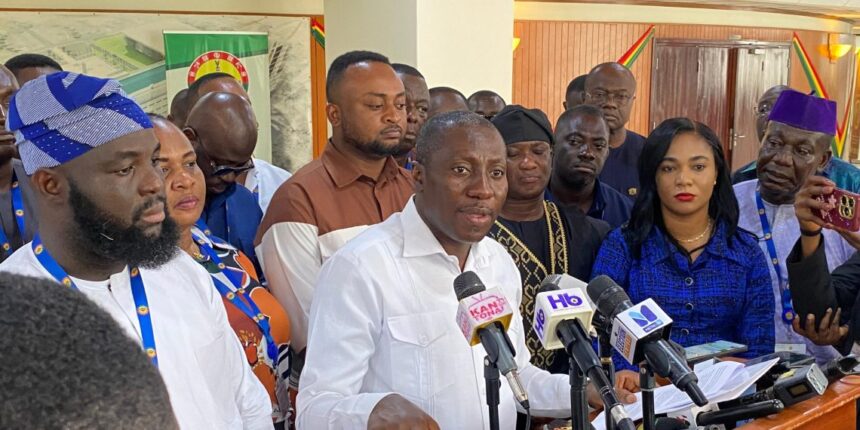By: Baba Mohammed Issahak
The Minority Caucus in Ghana’s Parliament has pushed back strongly against recent comments by the Minister for Roads and Highways, Hon. Kwame Agbodza, over the status of the Tamale–Walewale Road Project.
Hon. Agbodza alleged that only 1% of the project has been completed since 2022, despite a $30 million advance payment made to the contractor. He further stated that efforts were underway to retrieve the money. However, the Minority insists these claims are misleading and politically motivated.
In a statement released on Monday, the minority Caucus expressed disappointment, especially given the Minister’s prior role as Ranking Member of the Roads and Transport Committee. “He knows the full context and yet is peddling half-truths,” the statement said.
According to the Minority, the project, particularly the Savelugu to Walewale section, was legally awarded in March 2020 under a Design and Build EPC contract, funded by a credit facility from India’s EXIM Bank. While the contract became effective in December 2021, actual work began in June 2022, with a projected completion date of December 2025.
The advance payment of $29.65 million, the Caucus clarified, was for mobilisation activities, not construction. It covered the procurement of equipment, the setting up of site facilities, and the critical early-stage groundwork. The payment was backed by a valid Advance Payment Guarantee, in line with international FIDIC Yellow Book standards.
However, in December 2022, Ghana’s suspension of external debt repayments led EXIM Bank to halt funding. This ultimately forced the contractor to issue a termination notice in March 2024. The Ghana Highway Authority has since activated the guarantee’s recovery clause, which is now the subject of ongoing legal proceedings in India.
“To suggest mismanagement is not only wrong, but dishonest,” the Minority stated. “The Minister is merely continuing a recovery process already in motion before he took office.”
They called on Hon. Agbodza to focus on completing stalled road projects rather than politicising infrastructure challenges.
“The public deserves facts, not finger-pointing,” their statement concluded.


